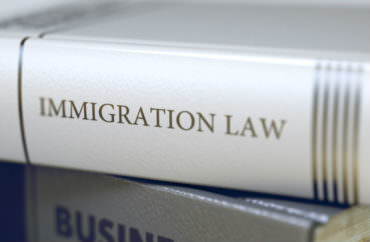
UPDATED
Governor proposes reduced rate for residents in the state illegally
The governor of Wisconsin recently proposed a change in higher education policy that would allow illegal immigrants living in that state to pay in-state tuition at public universities there. If it passes, Wisconsin would join twenty other states and the District of Columbia in allowing in-state tuition for illegal immigrants.
Currently, undocumented immigrants in Wisconsin must pay out-of-state tuition rates. The proposal brought forward by Evers would allow for any student who has attended a Wisconsin high school for three years or more access to in-state rates, regardless of his or her immigration status.
State’s largest university supports change
Meredith McGlone, a spokeswoman for the University of Wisconsin-Madison, told The College Fix via email: “We believe cost should not be a barrier to attendance at UW-Madison for any qualified Wisconsin high school graduate.” McGlone didn’t clarify whether or not the university explicitly supports the proposed change. UW-Madison is the flagship campus of the state university system; it is also the largest university in that state.
Other schools remained neutral on the proposed law. Madison Area Technical College will follow “existing, current law”, campus spokesman Bill Bessette told The College Fix.
Senator Patrick Testin, a Republican state senator, expressed opposition to the idea of in-state tuition being allowed to those living in Wisconsin illegally.
“I respect immigrants and the contributions that they make to our state. However, I don’t think we ought to extend a privilege that come with living in our state – like in-state tuition – to those that are here illegally,” Testin said.
Passing such a proposal does not happen unilaterally. In order for the measure to be fully approved, it must pass the legislature after being introduced by the governor.
“Once introduced, [the budget] goes to the Joint Finance Committee, made up of eight members from each house. The joint finance committee then reviews every proposal in the budget and votes in favor of the item, against the item, or to change the item,” Testin said.
Once the Joint Finance Assembly approves the budget and both the assembly and the senate vote it through, it moves on to the governor, who then signs it into law. Currently the measure has not yet been approved. The final proposal is in the works.
Not the first state to make exceptions
Other universities across the country have extended breaks to illegal immigrants in various ways. At the University of California last year, the Board of Regents increased out-of-state tuition by 3.5 percent while at the same time exempting illegal immigrants from that rate hike.
In 2017 the University of California created a cap on out-of-state applicants for the university system, but illegal immigrants were exempt from that rule, as well.
Along with the twenty states that allow undocumented immigrants in-state tuition, private universities such as Tufts University and Emory University offer significant amounts of financial aid to undocumented students as needed.
MORE: How can illegal immigrants attend public universities?
MORE: Smith College to offer scholarship to illegal immigrants
UPDATED: This article has been updated to clarify that the spokeswoman for the University of Wisconsin-Madison did not explicitly state that the university supports or opposes the proposed change in tuition rates.
IMAGE: Tashatuvango / Shutterstock.com
Like The College Fix on Facebook / Follow us on Twitter






Please join the conversation about our stories on Facebook, Twitter, Instagram, Reddit, MeWe, Rumble, Gab, Minds and Gettr.